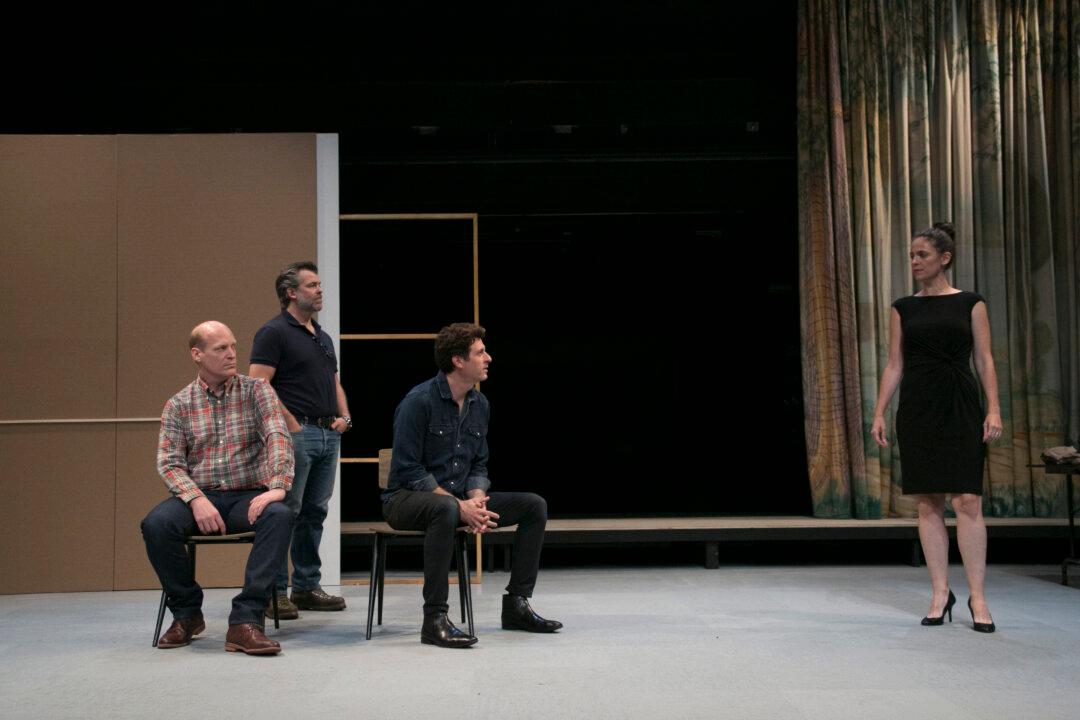NEW YORK—Things that are supposedly “perfect” on the surface, be it apples, diamonds, or people’s lives, often fall apart under scrutiny and pressure. This point is the message in Richard Maxwell’s penetrating “Isolde,” now at the Polonsky Shakespeare Center.
Isolde (Tory Vazquez) is both a beautiful and admired actress. Fan love and adoration have gone on for so long, it’s become part of the very fabric of her being, and something she now expects and requires in all things.
Fortunately, her loving husband, Patrick (Jim Fletcher), successful in his own right as a building contractor, is more than happy to play the subordinate role in their relationship. He quite willingly caters to her every need. Isolde’s temperament has become more demanding of late, due in part to the fact she’s slowly losing her memory. Thus, she is determined to make her mark on all things for as long as she can.





